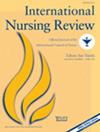Difficulties and needs of new nurse managers during role transition: A perspective from role theory
Abstract
Aim
To investigate the challenges and needs of new nurse managers transitioning from staff nurses to manager roles.
Background
Nursing managers are often selected based on clinical expertise, not proven leadership skills. Their complex roles and evolving healthcare policies result in heightened expectations from society, institutions, patients, and staff. The often-overlooked transition phase from staff nurse to manager presents distinct challenges and needs. Clarifying these aspects is crucial for developing effective nursing policies and improvement initiatives.
Methods
A phenomenological qualitative study was conducted at a tertiary hospital in Beijing, following the COREQ guidelines from April to June 2023. Fourteen new nurse managers were interviewed using a semi-structured interview guide based on the role theory. Data were analyzed using Nvivo 12.0 and Colaizzi's thematic analysis.
Results
Four themes emerged, including role ambiguity (adjustment difficulties, unclear expectations, poor handling), role conflict (inconsistencies between work and family, management, competencies), role learning (self-improvement, external support, resilience), and role behaviors (summarizing experiences, time management, promoting coworkers, research capability).
Discussion
Identifying the difficulties and needs of new nurse managers during their role transition can help healthcare organizations develop tailored training, external support, positive psychology, and academic advancement strategies.
Conclusions
New nurse managers face significant transition obstacles, necessitating comprehensive support. This prompts healthcare organizations to adopt best practices for facilitating role adaptation and talent development.
Implications for nursing and health policy
To ensure the successful adaptation of new nurse managers, comprehensive and tailored strategies should be developed based on identified transition challenges and needs. This support will enhance their competencies and stress management. Nursing policymakers should encourage new nurse managers to participate in the formulation of policies and training programs.

 求助内容:
求助内容: 应助结果提醒方式:
应助结果提醒方式:


